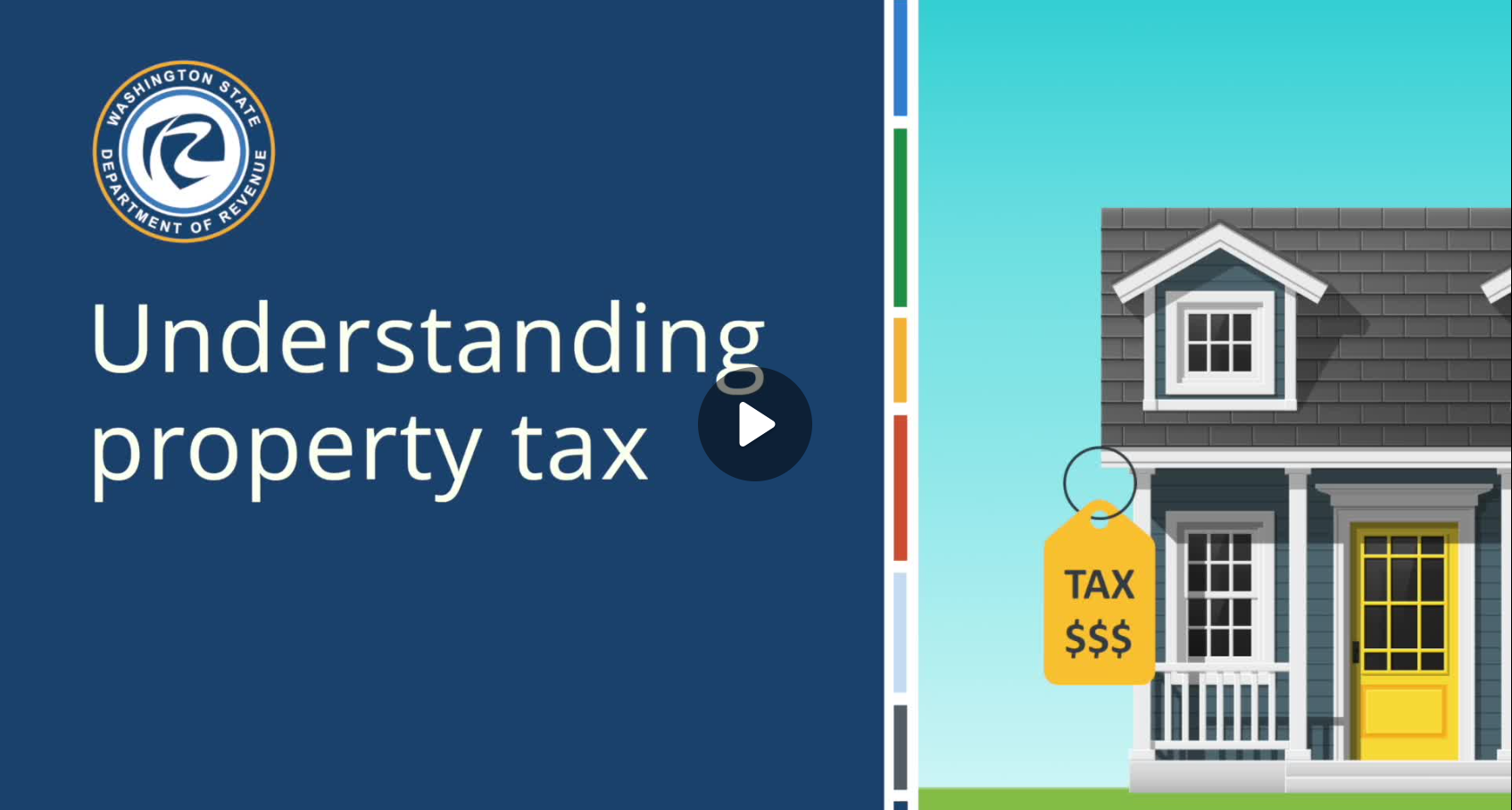Quick Links
About Property Taxes
Property taxes are one of the primary funding source for the public services provided by local government. Examples of local government services are schools, fire and EMT/Ambulance, county road maintenance, cities, ports, clean water, and libraries.
While county assessors and treasurers administer property taxes, they do not determine the billing amount. County assessors value (assess) properties, and county treasurers collect the associated property taxes for the taxing districts.
Your property's physical location determines what boundary area is used to build your tax bill. To illustrate which services a homeowner pays for, each property tax bill individually lists the local government entity (taxing district) that provides services to that property, and the amount owed for that service per year.
Watch this Understanding Property Tax video and learn the basics of property tax.
Property Tax Formula
Washington State has a budget-based system of property taxation. There are three main components to the property tax:
- Levy amount
- Assessed value (AV)
- Levy rate
Under the budget-based system, a taxing district establishes the amount of property tax revenue needed to fund their budget. The amount needed to fund the budget is called the levy amount. It is the total amount to be collected from the taxpayers by a taxing district.
Annual Property Taxes =
[(Assessed Value/1,000) x Levy Rate]
+ Special Assessments and Fees
By November 30 of each year, the amount of taxes to be levied by taxing districts are certified to the county assessor. The county assessor then calculates the levy rate necessary to raise that amount of revenue by dividing the total levy amount by the assessed value of taxable property in the district.
By law, this number is expressed in terms of a dollar rate per $1,000 of valuation. For example, a rate of $0.00025 is expressed as $0.25 per $1,000 of assessed value. (Source: MRSC)
Personal Property Taxes
Business Personal Property is different than Real Property, but it is assessed and taxed similarly. Business Personal Property is considered all furniture, fixtures, machinery, farm equipment and supplies owned, possessed, or controlled by an individual, sole proprietorship, partnership, corporation, LLC or association and used for business purposes. For a complete definition of personal property for tax purposes, see WAC 458-12-005 and RCW 84.04.080.






